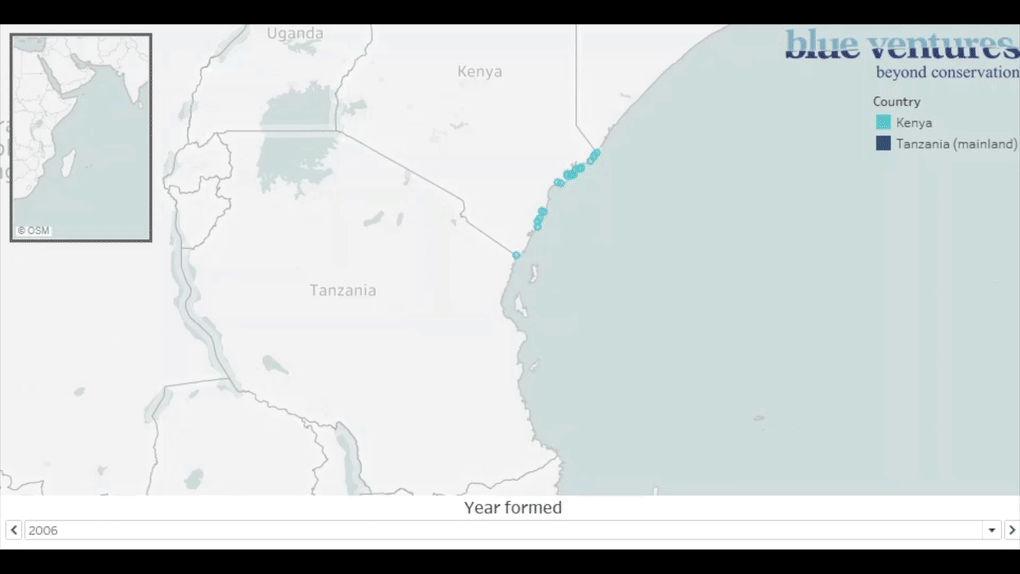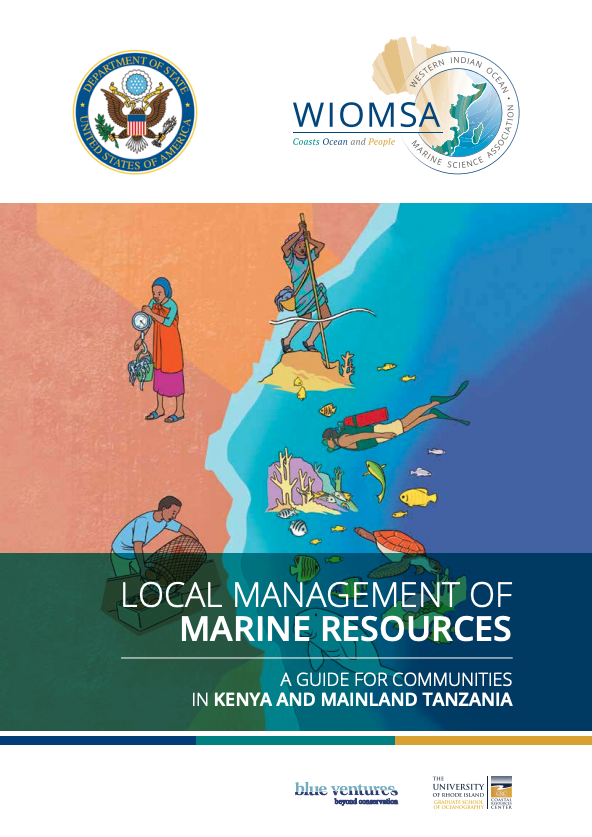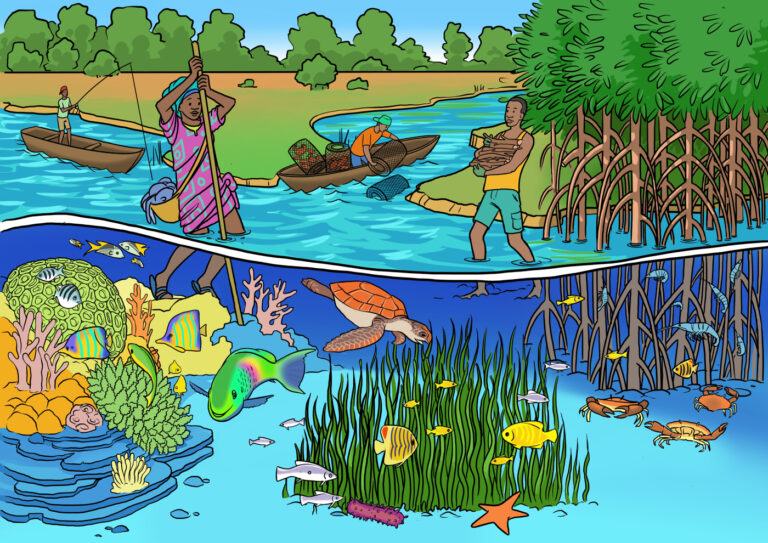Blue Ventures has collaborated with the University of Rhode Island’s Coastal Resources Center and the Western Indian Ocean Marine Science Association (WIOMSA) to develop a new guide on the co-management of fisheries and coastal environments by local communities and government. This guide aims to provide support and advice to the growing number of communities in Kenya and mainland Tanzania who are taking an interest in managing their local marine resources.
In Kenya and Tanzania, intact marine ecosystems are vital to the livelihoods, food security and cultural identity of many coastal communities. According to an independent analysis conducted by Blue Ventures in 2018, there are now over 200 community groups – formed of, and run by, local people – that are engaged in managing their local fishing activities along the Kenyan and mainland Tanzanian coasts. These groups operate as ‘Beach Management Units’ (BMUs): legally recognised management bodies represented by an elected group of fishers and other local stakeholders.

Since 2003, Blue Ventures has been part of a movement in the Western Indian Ocean (WIO) promoting a more devolved, locally led approach to the management of coastal ecosystems. Co-management systems allow communities, in collaboration with local government, to develop management strategies for their local marine environment which respond to their needs and address local threats. These can include practices such as gear restrictions, no-take zones and temporary fishery closures. Groups have also focused on ways of reducing dependency on fishing, such as diversifying into other livelihoods like ecotourism and aquaculture.

The guide to Local Management of Marine Resources, available in both Kiswahili and English, provides an overview of this approach; introduces the important ideas and processes involved in establishing co-management, and the legal frameworks in Kenya and mainland Tanzania which support its implementation. It includes guidance on establishing management committees; identifying and enforcing management rules, and achieving legal recognition of a management group through nationally recognised governance frameworks.
The guide also recommends that communities considering a co-management approach can tap into existing networks in Kenya, Tanzania, and throughout the WIO region. In doing so, they can learn from the experiences of other regions and inspire other communities to take a similar approach. Peer-to-peer exchanges, which have been instrumental in the propagation of community-led management across the WIO, build confidence in the approach and provide forums for exchanging experiences and ideas.
This guide comes at an important time in the co-management movement in East Africa. Whilst increasing numbers of communities are engaging in co-management approaches, and whilst supportive policy frameworks exist, an analysis of the governance and management of BMUs in southern Kenya and Tanzania suggests that many of them do not have functional or effective governance and management systems in place. Others have struggled to enforce their proposed management measures, such as temporary closures and no-take zones, or maintain governance activities, such as regular committee meetings.
This guide will contribute to the suite of tools that Blue Ventures and partner organisations have developed, alongside communities, to support the transition to effective local management of fisheries and the marine environment. Collaborating on this guide is just one of many activities Blue Ventures is undertaking in Kenya and Tanzania to help secure the long-term future of productive marine ecosystems for coastal communities. Through the formation of supportive partnerships with locally-based organisations, and by promoting and developing community learning networks, Blue Ventures is contributing to a movement that is transforming that way people interact with and manage their local marine environment.
Download the guide in English or Kiswahili
This guide was produced as part of the project “Strengthening East African Marine Protected Areas”, implemented by WIOMSA, The University of Rhode Island, Kenya Wildlife Services, Tanzania’s Marine Parks and Reserves Unit and Blue Ventures. The project is funded by the United States Department of State.
For more information, contact Communications Coordinator Ruth Leeney























